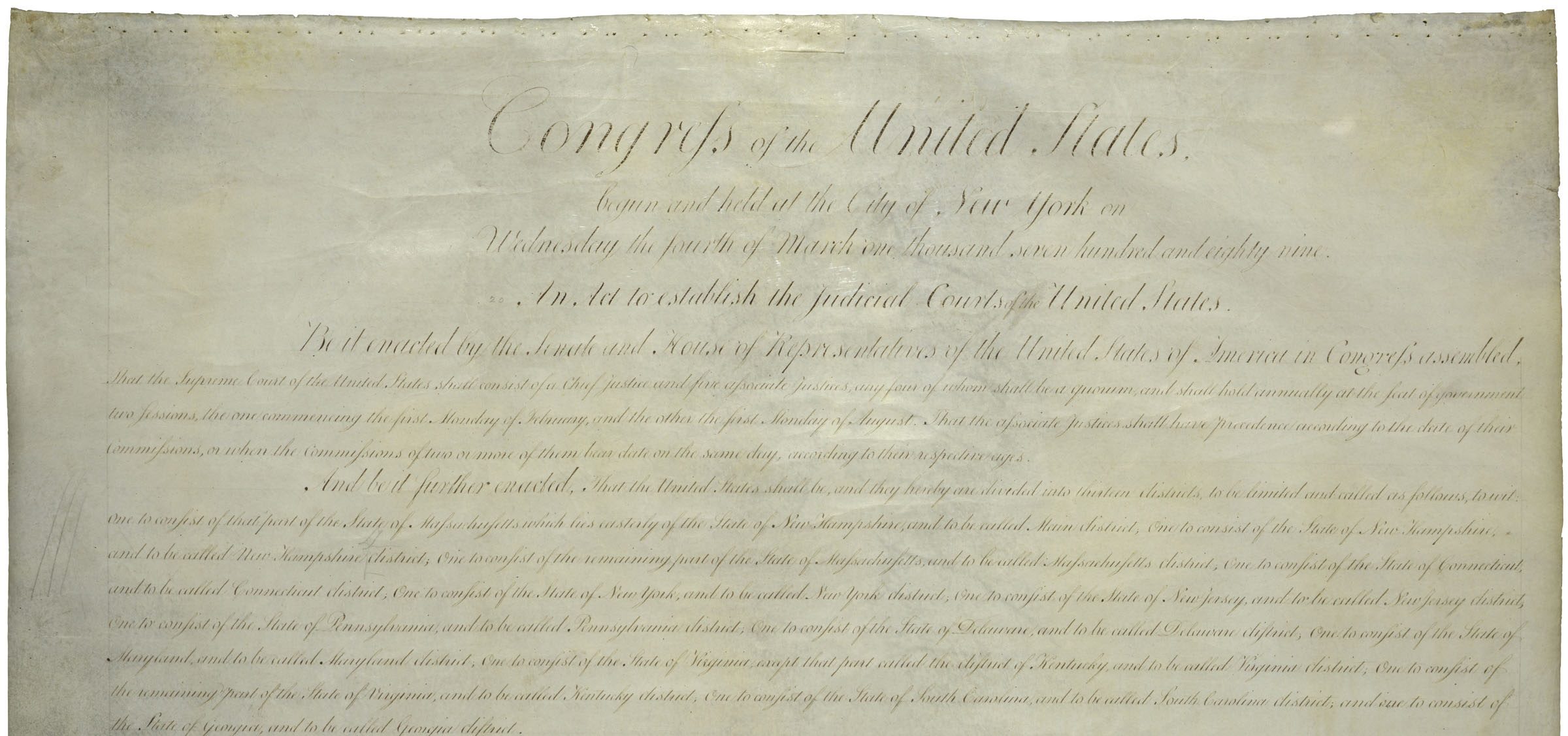In Taylor v. Medtronic, Inc., No. 20-742 (2d Cir. Sept. 30, 2021), the Second Circuit holds the defendants to the strict requirements 28 U.S.C. § 1446(b), holding that a defendant that erroneously believed it was not properly served could not retroactively consent to a removal petition after the statutory 30 days by joining the otherContinue reading “Properly Served Defendant Cannot Cure Its Failure to Timely Consent to a Removal Petition Under 28 U.S.C. § 1446(b) by Joining the Opposition to a Motion to Remand, Holds Second Circuit”
Monthly Archives: September 2021
Second Circuit Rejects Attempt to Blow Up 16-Year-Old “Gag Order” Under Fed. R. Civ. P. 60(b)(4)
In SEC v. Romeril, No. 19-4197 (2d Cir. Sept. 27, 2021), the Second Circuit affirms a decision not to vacate a 2003 consent judgment between a corporate CFO and the Securities and Exchange Commission because the defendant “does not allege a defect that would permit relief under Rule 60(b)(4).” Rule 60(b)(4) authorizes courts to “relieveContinue reading “Second Circuit Rejects Attempt to Blow Up 16-Year-Old “Gag Order” Under Fed. R. Civ. P. 60(b)(4)”
Ninth Circuit Vacates Preliminary Injunction Ordering Los Angeles to House All Local Homeless, Faulting the Lower Court for “Impermissibly Resort[ing] to Independent Research and Extra-Record Evidence.”
In LA Alliance for Human Rights v. County of Los Angeles, No. 21-55395 (9th Cir. Sept. 23, 2021), the panel eviscerated a preliminary injunction won by a group of homeless advocates, holding that the district court made findings based on its own research, based on claims not raised by the plaintiffs. “Nearly one in fourContinue reading “Ninth Circuit Vacates Preliminary Injunction Ordering Los Angeles to House All Local Homeless, Faulting the Lower Court for “Impermissibly Resort[ing] to Independent Research and Extra-Record Evidence.””
Website Has Standing but Fails to Overcome State Secret Doctrine in Challenge to NSA “Upstream” Surveillance Program, Holds Splintered Fourth Circuit Panel
In Wikimedia Foundation v. NSA, No. 20-1191 (4th Cir. Sept. 16, 2021), a three-way split panel holds 2-1 that Wikimedia has Article III standing to challenge National Security Agency’s (NSA) domestic surveillance of transmission lines, but a different 2-1 majority holds that the case fails because of the “state secret doctrine.” The Fourth Circuit hadContinue reading “Website Has Standing but Fails to Overcome State Secret Doctrine in Challenge to NSA “Upstream” Surveillance Program, Holds Splintered Fourth Circuit Panel”
Must the Government Prove That an “Enterprise” Presently Exists as the Object of a RICO Conspiracy? A Split Sixth Circuit Panel Enters the Fray in Biker Gang Prosecution.
In United States v. Rich, No. 18-2268 (6th Cir. Sept. 13, 2021), the Sixth Circuit enters the circuit split about whether, in a Racketeer Influenced and Corrupt Organization Act (RICO) prosecution, the government is required “to prove the existence of the enterprise, or whether an agreement to create a racketeering enterprise suffices.” The majority holdsContinue reading “Must the Government Prove That an “Enterprise” Presently Exists as the Object of a RICO Conspiracy? A Split Sixth Circuit Panel Enters the Fray in Biker Gang Prosecution.”
Fifth Circuit Holds That Busker Has Standing to File Pre-Enforcement First Amendment Challenge to Ban on Musical Performances for Money in Public Places
In Barilla v. City of Houston, No. 20-20535 (5th Cir. Sept. 10, 2021), a Fifth Circuit panel reverses dismissal on standing grounds of a First Amendment challenge to Houston’s ordinance clamping down on “bands, musicians, singers, mimes, and other artists who perform for gratuities on the sidewalk.” “Barilla challenges three City ordinances (collectively, the ‘BuskingContinue reading “Fifth Circuit Holds That Busker Has Standing to File Pre-Enforcement First Amendment Challenge to Ban on Musical Performances for Money in Public Places”
Judicial Severance of an Invalid Provision From a Statute Is Not a “Remedy” with Only Prospective Effect, Holds Sixth Circuit
In Lindenbaum v. Realgy, LLC, No. 20-4252 (6th Cir. Sept. 9, 2021), the Sixth Circuit holds that severance of an offending section of a federal statute by the U.S. Supreme Court is not a judicial “remedy” that operates only prospectively and that severance thus has retrospective effect. Two terms ago in Barr v. Am. Ass’nContinue reading “Judicial Severance of an Invalid Provision From a Statute Is Not a “Remedy” with Only Prospective Effect, Holds Sixth Circuit”
Split Second Circuit Panel Holds That District Court Erred by Admitting “Opinion” Testimony that Defendant “Employed Countersurveillance Driving Techniques,” Ordering New Trial
In United States v. Cabrera, No. 19-3363 (2d Cir. Sept. 8, 2021), the panel majority holds that the jury in a criminal prosecution should not have heard officer testimony that the defendant, “unlike the ‘average drug dealer,’ appeared to be ‘experienced’ because he had employed countersurveillance driving techniques (which consisted of really bad driving).” TheContinue reading “Split Second Circuit Panel Holds That District Court Erred by Admitting “Opinion” Testimony that Defendant “Employed Countersurveillance Driving Techniques,” Ordering New Trial”
Seventh Circuit Discusses “Nerve Center” Test for Diversity Jurisdiction as Applied to Corporate Subsidiaries
In Big Shoulders Capital LLC v. San Luis & Rio Grande Rd., No. 20-1503 (7th Cir. Sept. 3, 2021), the court remands a diversity action to determine whether the subsidiaries of a railroad – under the “nerve center” test – are citizens (1) of Illinois where the parent is headquartered, or (2) of Oregon, Delaware,Continue reading “Seventh Circuit Discusses “Nerve Center” Test for Diversity Jurisdiction as Applied to Corporate Subsidiaries”
Expert Report Proffered by a Party in a Prior Case Is Not Automatically a “Party Admission” for Purposes of Fed. R. Evid. 801(d)(2)(C), Holds Fifth Circuit
In HTC Corp. v. Telefonaktiebolaget LM Ericsson, No. 19-40566 (5th Cir. Aug. 31, 2021), the Fifth Circuit affirms exclusion of an expert report from a valuation expert who the defendant had used in prior litigation, holding that the prior expert’s testimony is inadmissible hearsay and not admissible as a party admission under Fed. R. Evid.Continue reading “Expert Report Proffered by a Party in a Prior Case Is Not Automatically a “Party Admission” for Purposes of Fed. R. Evid. 801(d)(2)(C), Holds Fifth Circuit”
